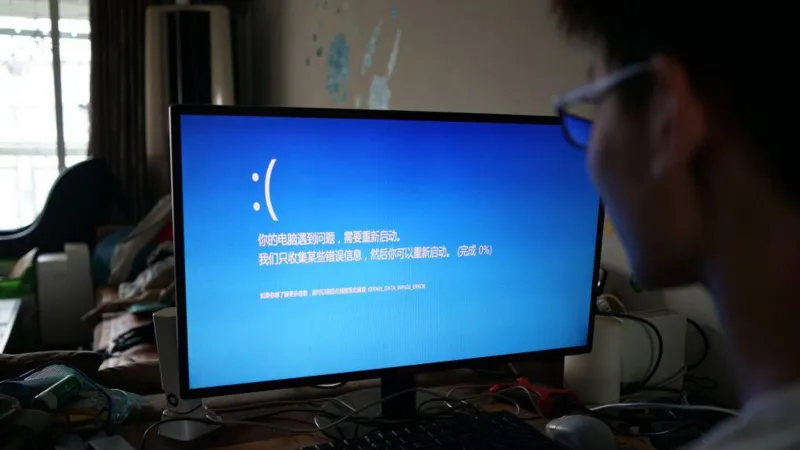
As many parts of the world struggled with a massive tech outage, one nation managed to weather the storm: China.
The explanation for China's relative immunity is straightforward: CrowdStrike, a prominent cybersecurity company, has minimal presence in the country.
Few organizations in China choose to purchase software from American companies, especially those that have openly criticized the cybersecurity risks posed by the Chinese government. Additionally, China's reliance on Microsoft is lower than that of many other nations, with homegrown tech giants like Alibaba, Tencent, and Huawei leading the cloud services market.
Consequently, reports of disruptions in China were mostly linked to foreign businesses and enterprises. On social media platforms, some users noted they faced issues while trying to check into well-known international hotel chains like Sheraton, Marriott, and Hyatt in Chinese cities.
In recent years, Chinese government agencies, businesses, and essential service operators have increasingly shifted from foreign IT systems to domestic alternatives. Analysts have coined this separate network as the "splinternet."
"This reflects China's strategic approach to managing foreign technology operations," explains Josh Kennedy White, a cybersecurity expert in Singapore. "Microsoft operates in China through a local partner, 21Vianet, which independently manages its services, enabling vital Chinese sectors, such as banking and aviation, to remain insulated from global disruptions."
The Chinese government views reducing dependence on foreign tech systems as crucial for bolstering national security. This is akin to actions taken by several Western nations, which barred the technologies of Chinese companies like Huawei in 2019, or the UK's 2023 ban on TikTok for governmental devices.
In response to these actions, the United States has implemented a series of restrictions on the sale of advanced semiconductor technologies to China and worked to prevent U.S. investments in Chinese tech. The U.S. government justifies these measures on the grounds of national security.
While the Hong Kong airport experienced some service disruptions due to the outage, the state-run Global Times published an editorial that indirectly criticized international tech restrictions.
"Certain nations continuously speak of security, broadly interpreting the concept while neglecting actual security issues, which is quite ironic," the editorial remarked.
The argument here suggests that the U.S. attempts to set the rules of global technology usage while an American company can still create widespread disruption through negligence.
Moreover, the Global Times took aim at internet monopolies that dominate the industry: "A sole reliance on major companies to lead cybersecurity initiatives, as advocated by some nations, may not only restrict equitable governance outcomes but could also introduce new vulnerabilities."
The mention of "sharing" hints at ongoing debates about intellectual property, highlighting China's stance against allegations of technological theft from the West. Beijing promotes an open global tech market while maintaining strict control over its domestic industry.
Despite the broader stability, not everything in China was entirely unaffected. A small contingent of workers expressed gratitude towards the American software giant for inadvertently providing an extended weekend.
"Thank you Microsoft for an early vacation," trended on Weibo, with users sharing images of blue error screens.



